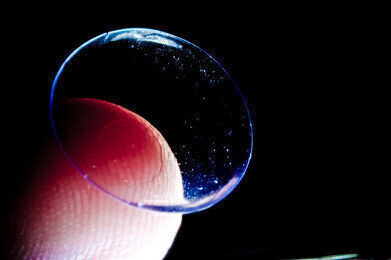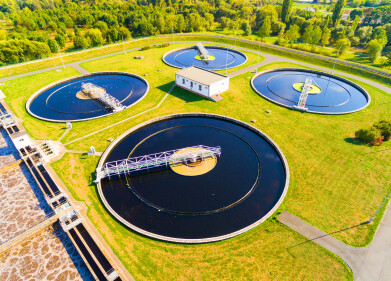Water/Wastewater
How Do Contact Lenses Affect the Environment?
Oct 16 2018
According to 2017 statistics, more than two-thirds (68%) of the British public need some form of visual aid to augment their impaired vision. For many people, the convenience afforded by contact lenses compared to glasses makes a huge, tangible difference to their daily routine and inestimably enhances their quality of life.
However, very little thought is given to what happens to these tiny plastic shells once they have been consumed. With many contact lenses only suitable for a single day’s use, millions of contact lenses are disposed of every year. A new study from the USA is the first of its kind to shine a light on what happens to contact lenses when we’re done with them - and how they impact the environment.
An eye-opening investigation
To get to the bottom of the mystery, Rolf Halden, Charlie Rolsky and Varun Kelkar from the Arizona State University conducted a survey of Americans who wear contact lenses. They found that around 15% to 20% of respondents admitted they flushed their lenses down the toilet once they were finished with them; given that there are approximately 45 million contact lens users in the US, that equates to between 6.75 million and 9 million pairs of contact lenses being flushed all the time.
The team estimated that between 6 and 10 metric tonnes of contact lenses are washed down American drains every year, eventually reaching wastewater treatment plants. It’s difficult to assess what happens to them next, because the material used in contact lenses (a combination of fluoropolymers, polymethylmethacrylate and silicones) differs from standard plastics (such as polypropylene). The size and transparency of a contact lens also makes it difficult to track.
Simulating the process
In order to understand how wastewater plants affect contact lenses, the team tested five different polymers commonly found in contact lenses against microorganisms (both aerobic and anaerobic) which are present at wastewater treatment facilities. They then used the technique of Raman spectroscopy to analyse them, with the results suggesting that improper disposal of contact lenses could contribute to the huge problem of microplastic pollution.
“We found that there were noticeable changes in the bonds of the contact lenses after long-term treatment with the plant's microbes,” explained Kelkar. “When the plastic loses some of its structural strength, it will break down physically. This leads to smaller plastic particles which would ultimately lead to the formation of microplastics.”
Devastating consequences
The adverse impact of microplastics on marine habitats is well-documented. Since contact lenses are generally denser than water, they often sink to the bottom of rivers, seas and oceans and are at risk of being consumed by bottom feeders. As the plastics contained within are indigestible, their inner digestive systems are deeply compromised, potentially leading to problems far further up the food chain.
Efforts to conserve our rivers and waterways are difficult enough without the added injection of more damaging materials into them. The scientists behind this study are hopeful that the light shone on the environmental impact wrought by contact lenses will encourage both manufacturers and wearers to seek more eco-friendly ways of manufacturing and disposing of them. “Ultimately, we hope that manufacturers will conduct more research on how the lenses impact aquatic life and how fast the lenses degrade in a marine environment,” said Halden.
Digital Edition
IET 34.2 March 2024
April 2024
Gas Detection - Biogas batch fermentation system for laboratory use with automatic gas analysis in real time Water/Wastewater - Upcycling sensors for sustainable nature management - Prist...
View all digital editions
Events
Apr 24 2024 Jakarta, Indonesia
Apr 24 2024 Sao Paulo, Brasil
Apr 30 2024 Melbourne, Australia
Apr 30 2024 Birmingham, UK
May 03 2024 Seoul, South Korea


















